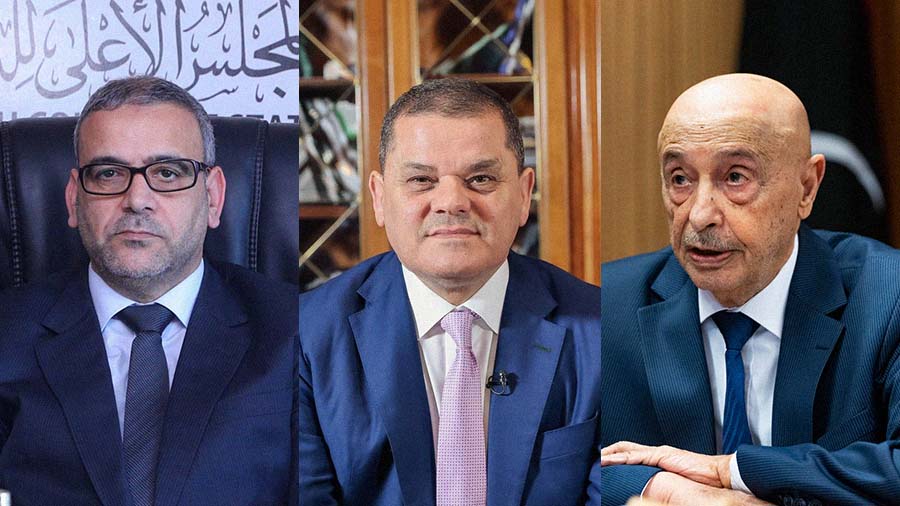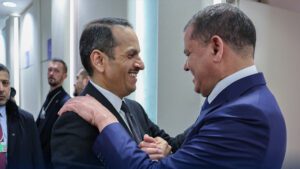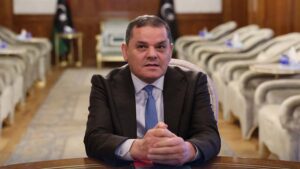The Head of the High Council of State (HCS) Khalid Meshri has accused the government and what he described as “De Facto” ruling forces of attempting to obstruct the work of the council.
This came in a televised speech in which Meshri claimed the reasons for these actions were the preliminary voting in the council on the roadmap and the thirteenth constitutional amendment which came before that.
Tensions may rise
Meshri held Prime Minister Dbeiba responsibility for the safety of the council members and any verbal or physical assault on them, as he accused the government and other top state officials of pressuring the HCS for aiming to reach a new unified government.
The HCS president further warned things could turn to the worse leading to military confrontations due to what he called ‘recklessness’ by the government, assuring he will be bringing the latest incidents to the attention of the Presidential Council as well as international actors.
Meshri’s statement came in the aftermath of members of the HCS being prevented from leaving the country by Internal Security agents in Maitiga Airport in Tripoli. Meshri has confirmed a call for an investigation to be conducted by the attorney general has been made.
Concern expressed by local and international stakeholders
The Speaker of the House of Representatives (HoR) Aguila Saleh has also made similar calls, regarding the HCS incident as well as the case of detaining former Finance Minister Faraj Bumatary. Meshri had also expressed his support for Bumatary, claiming there were no accusations of corruption against Bumatary by the attorney general, and that he was being detained for political reasons regarding his desire to run for the position of Governor of the Central Bank (CB).
The UNSMIL and the embassies of the USA and UK have joined in expressing their concern regarding incidents of illegal detention, calling for independent investigations concerning such events, and warning from the repercussions of such occurrences on tensions between local communities as well as diminishing the process of unifying state institutions.





